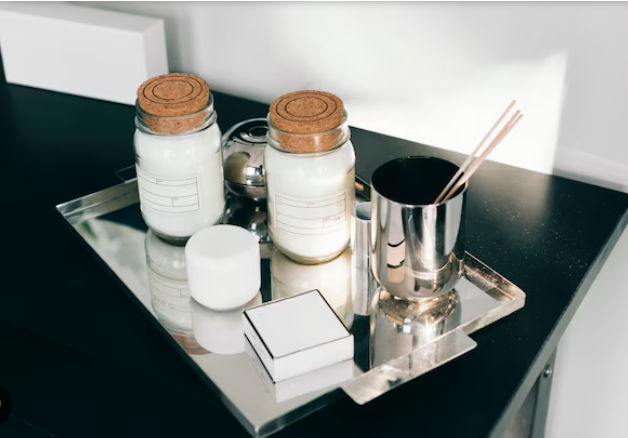As the global hospitality industry increasingly shifts toward sustainability, sourcing eco-friendly hotel amenities has become an essential part of maintaining a positive environmental footprint. Modern travelers are more conscious of their environmental impact, making it critical for hoteliers to offer sustainable amenities that reflect these values. This guide will explore the key considerations and strategies for sourcing sustainable hotel amenities, providing insights on both product selection and supplier relationships.

Understanding Sustainable Hotel Amenities
Sustainable hotel amenities include all the consumables and toiletries offered to guests during their stay. These often include items like shampoo, conditioner, soap, lotion, toothpaste, dental kits, and razors. With an increased awareness of environmental issues like plastic pollution, water usage, and chemical waste, hoteliers are now under greater pressure to replace traditional amenities with eco-friendly alternatives.
Sustainability in hotel amenities not only supports eco-conscious guests but can also contribute to a hotel’s brand reputation, operational savings, and long-term environmental stewardship. By integrating sustainable amenities into their offerings, hotels can reduce waste, conserve resources, and build trust with eco-minded customers.
1. The Importance of Sourcing Sustainable Amenities
There are several reasons why sourcing sustainable amenities is crucial for hoteliers:
- Guest Expectations: As travelers become more environmentally aware, many now prioritize sustainability when selecting accommodations. Offering eco-friendly amenities helps meet these expectations.
- Environmental Impact: Single-use plastic items, like tiny shampoo bottles and plastic-wrapped soaps, contribute to significant waste in landfills and oceans. Sustainable alternatives help reduce a hotel’s overall environmental impact.
- Cost Savings: Although some sustainable products may have higher upfront costs, they often provide long-term savings. For example, bulk shampoo dispensers can significantly reduce costs over time compared to single-use plastic bottles.
- Brand Image and Marketing: Sustainable practices are an excellent marketing tool. Eco-conscious travelers are likely to choose a hotel that aligns with their values, and sustainability can become a key differentiator in a competitive market.
- Regulatory Compliance: Many countries are now introducing regulations that target the reduction of plastic waste and encourage sustainable practices. By adopting sustainable amenities, hotels ensure compliance with these evolving laws.

2. Key Elements of Sustainable Hotel Amenities
When selecting sustainable hotel amenities, hoteliers should focus on the following criteria:
a. Eco-Friendly Packaging
One of the simplest ways to make hotel amenities more sustainable is to switch to eco-friendly packaging. This might include:
- Refillable Dispensers: Bulk refillable dispensers for shampoo, conditioner, and body wash are a great alternative to single-use bottles.
- Biodegradable Packaging: Amenities like soap bars or toothpaste tablets can be wrapped in biodegradable, compostable, or recyclable materials instead of plastic.
- Glass or Aluminum Containers: For products like lotions or face creams, glass and aluminum packaging are more sustainable than plastic, which is difficult to recycle and often ends up in landfills.
b. Natural Ingredients
Choosing amenities made from natural, plant-based ingredients is an important consideration for sustainability. These products are generally more biodegradable and less harmful to the environment compared to chemical-based toiletries. Natural ingredients such as essential oils, shea butter, and organic aloe vera are commonly found in eco-friendly shampoos, conditioners, and lotions.
c. Cruelty-Free Products
More hotels are sourcing cruelty-free amenities that are not tested on animals. These products usually align with broader ethical practices, making them a favorite among environmentally-conscious guests. Look for certifications like Leaping Bunny or Cruelty-Free International to ensure the products meet these standards.
d. Water Conservation
Another aspect of sustainability is ensuring that hotel amenities promote water conservation. Look for showerheads, faucets, and amenities that use less water but still provide a luxurious experience for guests. Some eco-friendly products are designed to be more concentrated, allowing for smaller portions to be used while reducing overall consumption.
3. Choosing Sustainable Suppliers
Finding the right suppliers is essential when sourcing sustainable hotel amenities. Here are some key steps for hoteliers to take when vetting suppliers:
a. Certifications and Standards
Look for suppliers that have certifications or adhere to recognized sustainability standards. Some common certifications include:
- Fair Trade Certified: Ensures the supplier meets social, economic, and environmental standards.
- Organic Certification: Indicates the products are made from certified organic ingredients.
- B Corporation Certification: Identifies businesses that meet high standards of social and environmental performance.
b. Supplier Transparency
Choose suppliers who are transparent about their sourcing and manufacturing practices. Ethical suppliers should openly share information about where their products are sourced, how they’re made, and what environmental or ethical standards they adhere to.
c. Local Sourcing
Local sourcing of hotel amenities reduces the carbon footprint associated with transportation. Working with local suppliers can help hoteliers support their communities while lowering the environmental impact of shipping products over long distances.
d. Ethical Labor Practices
Beyond environmental concerns, sustainability also involves the ethical treatment of workers. Ensure that your suppliers uphold fair labor practices, such as providing fair wages, safe working conditions, and equitable treatment for their employees.
4. Best Practices for Implementation
Implementing sustainable amenities in a hotel requires careful planning. Here are some tips for successful implementation:
a. Communicate with Guests
Educate guests about the sustainable amenities they will find in their rooms. Signage, website descriptions, and in-room information cards can all highlight your hotel’s commitment to sustainability. Transparency helps guests understand the value of the eco-friendly choices you’ve made.
b. Staff Training
Train your staff to properly handle and distribute sustainable amenities. Educating employees about the benefits of these products will ensure that they are equipped to answer guest questions and promote the sustainability efforts of the hotel.
c. Start Small
For hotels just beginning to transition to sustainability, start small and phase in sustainable amenities over time. Begin with high-use items such as shampoo and soap, and gradually extend sustainable practices to other products and services.
d. Monitor and Evaluate
Regularly assess the impact of your sustainable amenities program. Track guest feedback and evaluate the effectiveness of your efforts in reducing waste, conserving resources, and improving customer satisfaction.
5. Examples of Sustainable Hotel Amenities
Here are a few examples of sustainable hotel amenities that can help hoteliers get started:
- Lush Cosmetics Amenities: Lush is known for its eco-friendly packaging, natural ingredients, and cruelty-free products. Many hotels use Lush products for their in-room amenities.
- Eco-Friendly Bath Products: Companies like The Green Hotel, Environmental Housekeeping, and Clean the World offer a range of sustainable bath and body products, including biodegradable soap and refillable dispensers.
- Waterless Toiletries: Products like dry shampoo, waterless body wash, and deodorant provide a more sustainable alternative for guests looking to minimize water consumption.

Conclusion
Sourcing sustainable hotel amenities is no longer just a trend—it is a necessary step toward reducing a hotel’s environmental footprint and meeting the growing demand for eco-conscious travel. By carefully selecting eco-friendly products, partnering with transparent suppliers, and educating both staff and guests, hoteliers can make meaningful strides toward sustainability. In doing so, they not only contribute to a healthier planet but also enhance their brand image, improve guest satisfaction, and reduce long-term costs.
If you’re ready to embrace sustainability in your hotel, take the first step by reviewing your current amenities, identifying areas for improvement, and seeking out ethical, eco-friendly suppliers. The future of hospitality is green, and making the shift toward sustainable amenities is an important way to stay ahead in a competitive industry.
